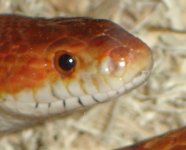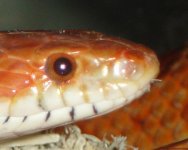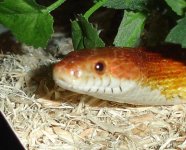dusterdust
New member
I've been reading through threads about wheezing, sneezing and RI because Floyd has been doing said things. I came across something that said to turn up the heat on the warm side...How can this be done without burning him, or I guess, heating the glass up...As well, I always assume that the 85-90 warm side refers to the glass temp...Am I right?
He keeps making squeeking noises, when I held him I could hear it from him when his head was by my ear...Also every hour or so I hear what sound like someone spraying a spray bottle...He keeps dunking his head in the water and rubbing it against the glass...
Dustin
He keeps making squeeking noises, when I held him I could hear it from him when his head was by my ear...Also every hour or so I hear what sound like someone spraying a spray bottle...He keeps dunking his head in the water and rubbing it against the glass...
Dustin



